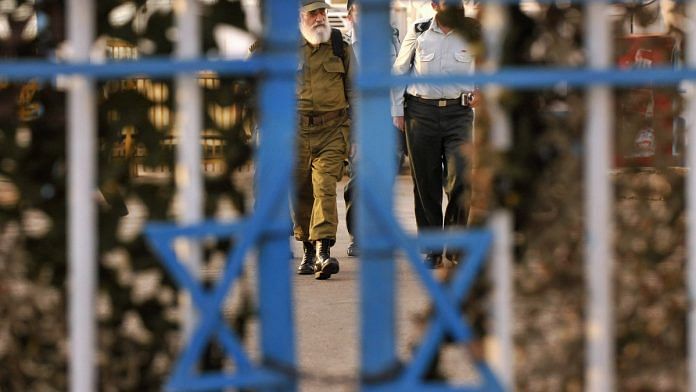Deeper ‘strategic threats’ from Hezbollah still remain
Lebanese militant group Hezbollah attacked the Israeli army base near the border Sunday. This is the most serious exchange of cross-border fire between the two since 2015 when Hezbollah had killed two Israeli soldiers.
This comes after Lebanon’s capital Beirut witnessed a drone attack recently, which it said was carried out by the Israeli forces.
In retaliation, Hezbollah fired several anti-tank missiles in Israel — targeting the military base and an army ambulance. A statement by Hezbollah stated that it managed to destroy a tank, which killed and wounded those inside it. The claim was, however, dismissed by Israel.
In response to the Hezbollah’s attack, the Israeli forces fired into southern Lebanon. An army statement said they shelled 100 targets in Lebanon.
The army claimed that Hezbollah’s missiles had struck several targets in the border city of Avivim.
Israeli military spokesperson Jonathan Conricus said “tactical events” seem to have ended, but the deeper “strategic threats” from Hezbollah still remain.
Lebanon PM asks for international intervention
Following the exchange of fire, Lebanon’s Prime Minister Saad Hariri dialled US Secretary of State Mike Pompeo and top French diplomat Emmanuel Bonne. According to Lebanon’s state media, Hariri has urged both the US and France to mediate between Hezbollah and Israel, and prevent escalation.
Meanwhile, United Nation UNIFIL mission, which is present at the border region between the two countries, has called for restraint.
“The head of mission is in close contact with the parties, urging maximum restraint and asking to seize any activities that are endangering the cessation of hostilities,” UNIFIL told Al Jazeera.
Hezbollah attack was expected
Since the 2006 war between Israel and Lebanon, which is known as the ‘July War’, the two countries have enjoyed relatively mutual peace. The 2006 war led to the death 251 Lebanese and 121 Israeli soldiers.
Since then, there have been some minor incidents, but the two countries have had minimum direct military conflict.
Hezbollah’s retaliation against Israel was, however, expected.
“It (Hezbollah) is blaming Israel for killing two of its members inside Syria, and it is blaming Israel for what it says were two armed drones inside the southern suburbs of Beirut,” according to a report by Al Jazeera.
Israel had reportedly started preparing for an attack after Hezbollah leader Hassan Nasrallah gave a speech on 25 August in which he had claimed that “Israel had breached the terms of engagement — that had been in effect since 2006”.



